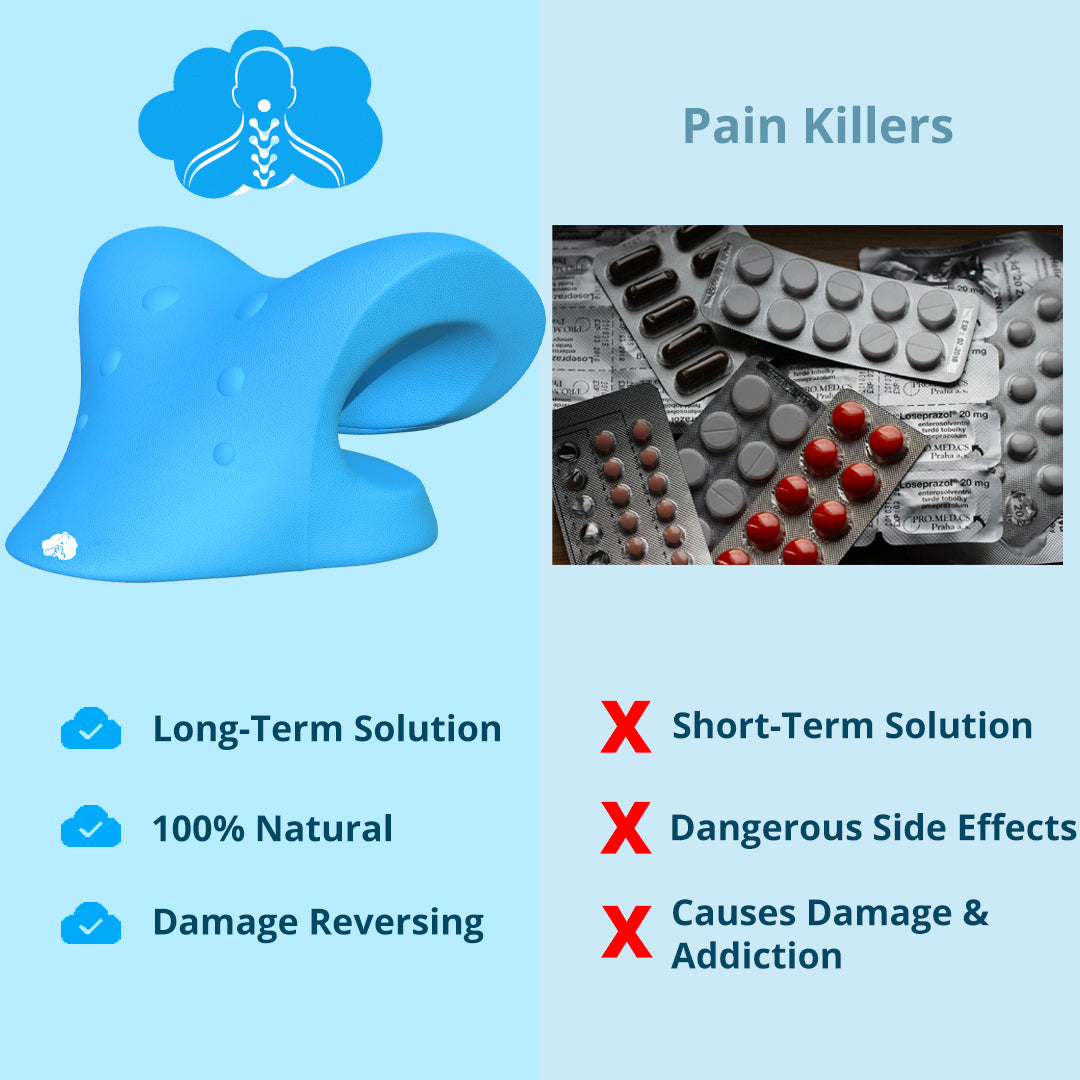Experience the Advantages of the Neck Cloud for Neck and Shoulder Alleviation
Experience the Advantages of the Neck Cloud for Neck and Shoulder Alleviation
Blog Article
The Effect of Stress on Neck Discomfort: Techniques for Decreasing Tension and Pain
In today's busy globe, it's no key that tension has actually become a widespread aspect in the start and worsening of neck pain. Join us on a trip to unravel the impact of stress and anxiety on neck discomfort and find efficient ways to relieve pain and boost overall top quality of life.
Understanding Stress-Related Neck Pain
Neck discomfort is a common issue that can frequently be associated to anxiety. Stress-related neck pain can show up as stress, tightness, or pain in the neck and shoulder location. The connection in between stress and neck pain depends on the body's physical feedback to stress and anxiety, which can result in muscle stress and rigidity in the neck muscles. Persistent anxiety can result in consistent neck pain and exacerbate status quo like cervical spondylosis or muscular tissue strains.

Identifying Common Tension Locations
Often experienced by people under tension, tension locations in the body can offer beneficial understandings right into the physical symptoms of emotional stress. One common tension location is the neck, where stress and anxiety commonly materializes literally. Stress frustrations, rigid neck muscular tissues, and limited array of movement prevail symptoms of stress-related neck stress. The shoulders are one more usual area where tension gathers. Tension can trigger the muscle mass in the shoulders to tighten, resulting in discomfort and pain. Additionally, the upper back is susceptible to stress accumulation, particularly in people that experience chronic anxiety. Poor position and prolonged resting can aggravate tension around. The jaw is also a typical area for stress-related stress, as lots of individuals squeeze their jaw or grind their teeth when stressed. Being conscious of these common stress areas can assist people identify the physical indications of stress and take steps to address them before they rise right into chronic pain or pain.
Implementing Relaxation Techniques
To efficiently take care of stress-related tension in the body, executing leisure techniques is essential. Leisure strategies are valuable tools for minimizing neck pain triggered by anxiety. Deep breathing workouts can help calm the mind and kick back tense muscular tissues in the neck and shoulders (neck cloud). Practicing mindfulness meditation can likewise be beneficial in relieving anxiety and advertising relaxation. Modern muscle relaxation, where you systematically stressful and after that loosen up different muscle mass groups, can launch built-up tension in more the neck area. Furthermore, tasks like yoga and tai chi include both physical movement and leisure, making them efficient practices for reducing anxiety and neck pain. Taking normal breaks throughout the day to stretch and relax can stop muscular tissue rigidity and tension from building up. By incorporating these relaxation methods right into your daily regimen, you can assist handle anxiety degrees, lower stress in the neck, and reduce pain linked with stress-induced neck pain.
Including Self-Care Practices
Integrating self-care techniques is crucial for keeping overall well-being and handling stress-related neck discomfort effectively. Engaging in routine exercise, such as gentle extending workouts or yoga exercise, can aid reduce stress in the neck and shoulders. Exercising excellent stance throughout the day and taking frequent breaks from long term resting or display time can additionally stop pressure on the neck muscle mass.
Furthermore, focusing on appropriate sleep and developing a regular sleep routine can contribute considerably to minimizing anxiety degrees and promoting leisure. Producing a relaxing going to view bed routine, such as reading a book or taking a warm bathroom, can help prepare the mind and body for relaxed rest. In addition, keeping a well balanced diet plan rich in nutrients and remaining moistened can support total wellness and reduce swelling that may exacerbate neck discomfort.
Integrating mindfulness methods, such as deep breathing exercises or meditation, can help manage stress and promote relaxation. Requiring time for oneself, involving in leisure activities, and establishing borders to safeguard personal time are also important facets of self-care that can contribute to decreasing stress and reducing neck discomfort.
Seeking Specialist Aid
Just how can individuals successfully deal with relentless neck discomfort that is affecting their daily life and health? Looking for professional assistance can be an important action in managing and alleviating neck pain. Consulting with health care professionals such as chiropractic specialists, physiotherapists, or orthopedic specialists can supply beneficial insights and customized therapy strategies. These look at more info specialists can carry out extensive assessments to detect the underlying sources of neck pain and recommend proper treatments.
Chiropractics physician focus on spine control methods to boost positioning and lower tension in the neck location. Physiotherapists provide targeted stretches and exercises to strengthen muscles, enhance flexibility, and enhance general neck feature. Orthopedic experts can offer sophisticated medical interventions such as shots or surgical options for extreme cases of neck discomfort.
Conclusion

Stress-related neck pain can manifest as tension, stiffness, or pain in the neck and shoulder area. The connection between tension and neck pain lies in the body's physical response to stress, which can result in muscular tissue stress and rigidity in the neck muscle mass. Tension frustrations, rigid neck muscle mass, and limited range of activity are typical signs and symptoms of stress-related neck tension. By incorporating these relaxation strategies into your daily regimen, you can help manage anxiety levels, minimize tension in the neck, and alleviate discomfort connected with stress-induced neck pain.

Report this page